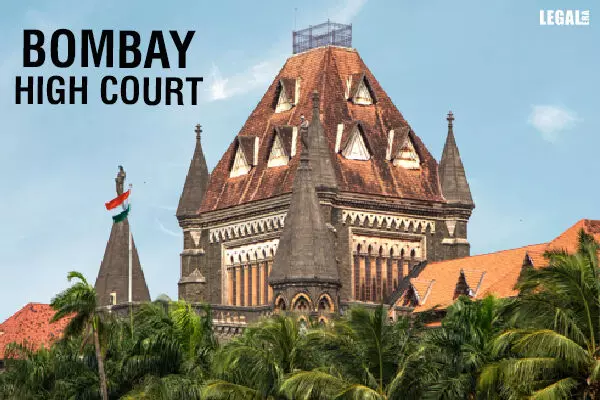- Home
- News
- Articles+
- Aerospace
- Artificial Intelligence
- Agriculture
- Alternate Dispute Resolution
- Arbitration & Mediation
- Banking and Finance
- Bankruptcy
- Book Review
- Bribery & Corruption
- Commercial Litigation
- Competition Law
- Conference Reports
- Consumer Products
- Contract
- Corporate Governance
- Corporate Law
- Covid-19
- Cryptocurrency
- Cybersecurity
- Data Protection
- Defence
- Digital Economy
- E-commerce
- Employment Law
- Energy and Natural Resources
- Entertainment and Sports Law
- Environmental Law
- Environmental, Social, and Governance
- Foreign Direct Investment
- Food and Beverage
- Gaming
- Health Care
- IBC Diaries
- In Focus
- Inclusion & Diversity
- Insurance Law
- Intellectual Property
- International Law
- IP & Tech Era
- Know the Law
- Labour Laws
- Law & Policy and Regulation
- Litigation
- Litigation Funding
- Manufacturing
- Mergers & Acquisitions
- NFTs
- Privacy
- Private Equity
- Project Finance
- Real Estate
- Risk and Compliance
- Student Corner
- Take On Board
- Tax
- Technology Media and Telecom
- Tributes
- Viewpoint
- Zoom In
- Law Firms
- In-House
- Rankings
- E-Magazine
- Legal Era TV
- Events
- Middle East
- Africa
- News
- Articles
- Aerospace
- Artificial Intelligence
- Agriculture
- Alternate Dispute Resolution
- Arbitration & Mediation
- Banking and Finance
- Bankruptcy
- Book Review
- Bribery & Corruption
- Commercial Litigation
- Competition Law
- Conference Reports
- Consumer Products
- Contract
- Corporate Governance
- Corporate Law
- Covid-19
- Cryptocurrency
- Cybersecurity
- Data Protection
- Defence
- Digital Economy
- E-commerce
- Employment Law
- Energy and Natural Resources
- Entertainment and Sports Law
- Environmental Law
- Environmental, Social, and Governance
- Foreign Direct Investment
- Food and Beverage
- Gaming
- Health Care
- IBC Diaries
- In Focus
- Inclusion & Diversity
- Insurance Law
- Intellectual Property
- International Law
- IP & Tech Era
- Know the Law
- Labour Laws
- Law & Policy and Regulation
- Litigation
- Litigation Funding
- Manufacturing
- Mergers & Acquisitions
- NFTs
- Privacy
- Private Equity
- Project Finance
- Real Estate
- Risk and Compliance
- Student Corner
- Take On Board
- Tax
- Technology Media and Telecom
- Tributes
- Viewpoint
- Zoom In
- Law Firms
- In-House
- Rankings
- E-Magazine
- Legal Era TV
- Events
- Middle East
- Africa
Bombay High Court Quashes Notice Demanding GST On Ocean Freight For Goods Transported From Overseas

Bombay High Court Quashes Notice Demanding GST On Ocean Freight For Goods Transported From Overseas
The Bombay High Court has nullified the show cause notice (SCN) requesting GST on ocean freight for the transportation of goods from beyond India's borders.
The bench, comprising Justices G. S. Kulkarni and Firdosh P. Pooniwalla, has relied on the decision of the Supreme Court in the case of Mohit Minerals Pvt. Ltd. v. Union of India, stating that the judgment extends to both free on board (FOB) and cost, insurance, and freight (CIF) contracts.
The petitioner/assessee has contested a showcause notice served by the Assistant Commissioner of Sales Tax on the ground that it has been issued without jurisdiction.
The petitioner contends that the show cause notice issued by the Designated Officer relies on Notification No. 8/2017-Integrated Tax (Rate) dated June 28, 2017, which has been invalidated by the Division Bench of the Gujarat High Court in the case of Mohit Minerals Pvt. Ltd. v. Union of India. This decision of the Gujarat High Court was appealed in Supreme Court in the case of Union of India v. Mohit Minerals Pvt. Ltd., where a three-judge bench upheld the Gujarat High Court's ruling.
In the Mohit Minerals case, the petitioner's situation before the Gujarat High Court involved the importation of coal from multiple countries under both FOB and CIF terms. The Supreme Court has affirmed the ruling of the Gujarat High Court.
The department argued that the ruling in the Mohit Minerals case should only be applicable to cases involving CIF contracts and not FOB contracts.
The court deemed the department's argument entirely untenable, considering that the Mohit Minerals case before the Gujarat High Court involved both CIF and FOB contracts, as explicitly noted in the judgment.
The court observed that once the revenue's decision was deemed ultra vires of the IGST Act and the notification itself was declared as such and upheld by the Supreme Court, it would be inappropriate for state authorities to utilize the notification. Doing so would constitute the application of an illegal notification, as per the settled principle of law established in the case of M/s. Kusum Ingots & Alloys Ltd. v. Union of India and Anr.



